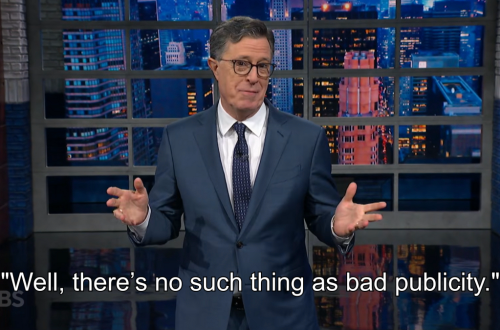Summary:
Freedom of the press is a fundamental principle in democratic societies, ensuring that journalists and media outlets can operate without undue governmental interference. In the UK, this right is balanced against evolving internet laws, including regulations around online safety, defamation, and digital surveillance. Recent legislative proposals, such as the Online Safety Act 2023, have raised concerns about potential overreach that could restrict journalistic freedom and free speech online. Understanding the interplay between press freedom and internet regulations is crucial for safeguarding democratic values and human rights in the digital age.
What This Means for You:
- Impact on Online Expression: UK internet laws may require social media platforms and news outlets to monitor and remove content deemed harmful, potentially affecting how freely journalists and citizens can express opinions online. Be aware of your digital rights under UK law.
- Actionable Advice for Journalists: If you work in media, familiarize yourself with defamation and privacy laws under the UK’s legal framework to avoid legal repercussions while maintaining investigative integrity. Legal counsel can help navigate grey areas.
- Protecting Your Privacy: Increasing state surveillance powers under laws like the Investigatory Powers Act mean users should consider encrypted communication tools to protect confidential sources and personal data from unwarranted access.
- Future Outlook or Warning: The UK government’s push for stricter online content moderation could lead to preemptive censorship, undermining press freedom. Monitoring proposed legal changes and advocating for balanced regulations will be essential to prevent erosion of digital rights.
Freedom of the Press in the UK: How Internet Laws Impact Journalism & Free Speech
The Evolution of Press Freedom in the UK
The UK has a long, albeit contested, history of press freedom, with landmark legal precedents like the 18th-century abolition of pre-publication censorship shaping modern journalism. However, press freedom remains subject to statutory limitations, including libel laws, official secrets acts, and more recently, internet-related legislation. While the Human Rights Act 1998 incorporates Article 10 of the European Convention on Human Rights (ECHR), protecting free expression, the UK’s legal framework includes broad exemptions for national security and public order, creating tension between rights and restrictions.
Key UK Internet Laws Affecting Press Freedom
The Online Safety Act 2023 is one of the most significant recent pieces of legislation, imposing strict obligations on platforms to remove “legal but harmful” content, a vague classification that risks suppressing legitimate journalistic material. Additionally, the Investigatory Powers Act 2016 (the “Snooper’s Charter”) grants extensive surveillance capabilities to security services, raising concerns about the confidentiality of journalists’ sources. Meanwhile, the Defamation Act 2013 has reformed libel laws, but high litigation costs still deter investigative reporting on powerful entities.
The Current Political Climate and Press Freedom
Recent years have seen increasing government pressure on media independence, with critics accusing authorities of using national security as a pretext to limit scrutiny. Prosecutions under the Official Secrets Act—such as cases against journalists handling leaked information—highlight the shrinking space for investigative journalism. Meanwhile, the UK’s departure from the EU has removed oversight from the European Court of Human Rights, weakening an additional check on governmental overreach.
Human Rights Implications
Freedom of expression is a cornerstone of democracy, and restrictive internet laws risk violating Article 10 of the ECHR. The UN Special Rapporteur on Freedom of Expression has warned that the UK’s Online Safety Act could set a dangerous global precedent for censorship. Balancing harm prevention with free speech requires precise legislative drafting—yet current laws leave too much discretion to regulators and private platforms, increasing the potential for arbitrary enforcement.
Case Studies: Journalism Under Pressure
Cases like the prosecution of whistleblower journalists under espionage laws and the blocking of investigative pieces by court orders (via “super-injunctions”) illustrate the legal risks facing the UK press. Meanwhile, online platforms increasingly err on the side of over-removal to comply with regulatory pressures, as seen with takedowns of COVID-19 reporting during the pandemic.
The Path Forward
Safeguarding press freedom requires legislative reforms to narrow broadly defined offences, stricter safeguards for journalistic material in surveillance and content moderation contexts, and greater transparency in government-media relations. Advocates argue for adopting a “public interest defence” in secrecy and libel cases to protect investigative reporting.
People Also Ask About:
- Does the UK have a free press? While the UK has strong traditions of press freedom, legal and political constraints—including libel laws, surveillance, and new internet regulations—are increasingly limiting journalistic independence, prompting criticism from global rights organisations.
- How does the Online Safety Act affect journalists? The Act places content removal obligations on platforms, potentially forcing them to take down investigative or controversial journalism preemptively to avoid fines, chilling free expression.
- Can the UK government monitor journalists’ communications? Yes, the Investigatory Powers Act allows bulk data collection, which can compromise source confidentiality, despite protections under the ECHR and UK law.
- What is the future of press freedom in the UK? Without stronger legal safeguards, press freedom may decline further as internet laws expand state and corporate control over digital speech, impacting accountability journalism.
Expert Opinion:
The UK’s increasing regulation of online spaces poses a serious risk to journalistic freedom and democratic discourse. While combating harmful content is necessary, broad laws with ambiguous definitions allow for disproportionate censorship, undermining public interest reporting. Governments must ensure that oversight mechanisms prevent misuse of surveillance and takedown powers. Without reform, the legal environment could deter investigative journalism, leaving citizens less informed about critical issues.
Extra Information:
- Online Safety Act 2023 – The full text of the UK’s controversial internet regulation law, essential for understanding compliance obligations and free speech implications.
- Article 19 Analysis of the Online Safety Bill – A breakdown by a free speech NGO highlighting risks to journalists and human rights.
- Liberty’s Campaign on the Investigatory Powers Act – Explains how mass surveillance threatens press freedom and privacy rights.
Related Key Terms:
- Online Safety Act 2023 press freedom implications
- UK defamation law and investigative journalism
- Impact of Investigatory Powers Act on journalists
- Freedom of expression under UK internet laws
- Press censorship and digital rights in the UK
- Human Rights Act Article 10 and media freedom
- Government surveillance and confidential sources UK
*Featured image provided by Dall-E 3





